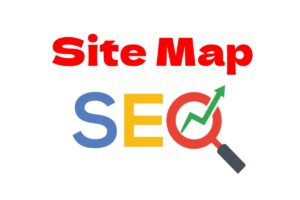
The internet is teeming with data that must be extracted via web scraping. And the more you know, the simpler this exercise will be and the more data you will have at your disposal.
Data is essential in everything we do today, but it is especially important for business owners. However, while some tools are simple and effective, others are complex and expensive to use or maintain.
This has prompted many business owners to look into the best web scraping tools. The best ones, without a doubt, must be open-source because they are less expensive and have a large community backing them for easy support for anyone who becomes stranded.
But, as we all know, not all open-source tools are created equal. Today we’ll look at the best open-source tools for your next web scraping project.
Why Do You Need the Right Web Scraping Library?
Web scraping is the process of interacting with multiple sources and extracting the data they contain using high-level machines. Machines frequently include proxies and scrapings, but they must be software that operates automatically and with as little human intervention as possible. This is done to reduce the monotony of performing repetitive tasks and to ensure that data is harvested as quickly and as accurately as possible.
There are several reasons why only the best libraries should be used for this exercise, and the following are some of the most common:
1. The Right Library Is Economical
While web scraping is necessary, it is not advisable to invest so much that the rest of your business suffers from underfunding. Using the right library reduces the cost of data collection and allows you to keep web scraping funding to a minimum.
2. A good library provides an all-around system.
Web scraping is frequently defined as a process, but even this process is subdivided into smaller processes that work together to collect millions of data points on a regular basis. You can send out requests, clear restrictions, interact with the target servers, harvest data, and parse it to an available storage unit all in one sweep if you use the right library.
3. It ensures to speed
Web scraping is a time-consuming task that is performed frequently. And, in order to improve data accuracy, the process must be completed as quickly as possible. While not all libraries promise such speeds, the best libraries will help ensure faster internet connections and faster data transfer.
The faster this occurs, the higher the rating of the library tools.
4. It operates automatically
We’ve discussed how web scraping can be tedious and time-consuming when done manually. Harvesting millions of data points on a daily basis can be overwhelming and taxing on even the most seasoned of us.
This is why web scraping must be automated, and the best tools ensure that the process is both automated and smooth. You can then enter a command once and let the tools do the rest. And, as with any Atlanta web design company, the more knowledge you have, the easier this exercise will be and the more data you will have at your disposal.
5. The Right Library Requires Little Upkeep
The cost of owning a tool includes everything from the cost of purchasing it to the cost of maintaining it and keeping it in good working order. Some tools require frequent and costly maintenance, whereas the right libraries require little or no maintenance at all.
The Most Popular Web Scraping Libraries
Python was chosen as our best web scraping language because it is widely used, simple to use, and inexpensive.
As a result, we will describe some Python libraries that are the best for web scraping tasks.
1. LovelySoup Library
- This is the most well-known Python library for web scraping. It is simple to learn and use, and anyone, including beginners, can use it.
- It can convert extracted documents to Unicode or UTF-8 format automatically and is mostly used to create a parse tree for easy parsing of HTML and XML files. As a result, it is frequently used in conjunction with the LXML library.
- Its main advantage is that it only requires a few lines of code to function. It is simple to use, has extensive documentation, is extremely robust, and includes automatic encoding detection.
- It does, however, have one drawback: it is slower than the LXML library.
2. Library of Selenium
- Some Python libraries are limited in that they can only scrape static websites and appear to struggle when the website contains dynamic features.
- This is not the case with the Selenium library. The library can easily scrape data from any website, whether it is static or changes on a regular basis.
- It has the following advantages: it performs the majority of human tasks, it automates all activities, including web scraping, and it scrapes from any website.
- Its main disadvantages would be that it is slow and difficult to set up, that it requires a large storage system, and that it is unsuitable for large-scale operations.
3. The LXML Library
- This library is a powerful and quick tool for delivering high-quality HTML and XML files.
- This library is well known for its one-of-a-kindness, which it achieves by combining the power and speed of Element trees with the simplicity of Python, and it can be learned by taking an LXML tutorial. Learn how to scrape public data with LXML in this recent Oxylabs article.
- Because of the above characteristics, it is commonly used to extract large datasets.
- Its main advantages are that it is one of the fastest parsers on the market, that it is very light-weight, and that it combines Element trees and Python API features.
- One of the known drawbacks is that it may be unsuitable for poorly designed HTML files and may not be user-friendly for beginners.
Conclusion
The best web scraping libraries are those that do the job in the simplest and most cost-effective way possible. We have highlighted the Python libraries above because we believe they are among the best web scraping libraries available today.







